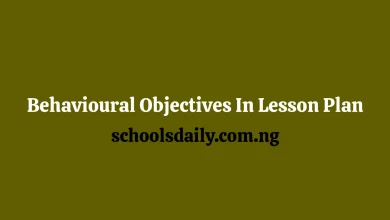Student Activities In Lesson Plan

This article explores Student Activities in lesson plans, providing valuable insights for teachers who are looking to enhance their instructional strategies. It serves as a resource for educators seeking to understand the importance and implementation of Student Activities in lesson planning.
What Is Student Activities In Lesson Plan
Student activities are the heart of a lesson plan. They are the moments when students actively engage with the material, practice new skills, and work together to apply their knowledge.
By carefully choosing and arranging these activities, teachers can create a dynamic and productive learning environment that goes beyond simply listening to a lecture. They transform a lesson from passive listening into active learning.
Types of Student Activities
Different types of student activities help teachers create a varied and engaging learning experience. Here are some of the most common types:
- Discussions get students talking. They’re a great way to introduce a topic, explore different viewpoints, or dig into complex issues by having students share their thoughts and perspectives.
- Group work promotes teamwork and collaboration. When students work together on a project, they not only learn the material but also build communication and problem-solving skills.
- Hands-on activities are all about learning by doing. These are perfect for demonstrating concepts, conducting experiments, or letting students practice new skills in a tangible way.
- Creative activities allow students to express themselves. They can be used to brainstorm new ideas, communicate concepts in a different way, or simply let their imagination run free.
Problem-solving activities challenge students to think critically. By having them use what they’ve learned to solve real-world problems, these activities help build crucial decision-making and strategic thinking skills.
Benefits of Student Activities In Lesson Plan
Student activities aren’t just a way to fill time; they’re a powerful tool that offers significant benefits for learners. They shift the focus from a teacher-centered approach to a student-centered one. Here’s how:
- Promotes Active Learning
Student activities encourage active learning, a teaching method where students become directly involved in the learning process instead of just listening to a lecture. By doing things like discussing ideas or completing a hands-on project, students are actively building their knowledge.
- Enhances Understanding and Retention
When students participate in activities, they’re more likely to fully understand and remember what they’ve learned. It’s the difference between reading a recipe and actually cooking a meal. The hands-on experience makes the information stick.
- Develops Critical Thinking Skills
Many activities, especially problem-solving and discussion-based ones, require students to think critically. They have to analyze information, evaluate different viewpoints, and form their own well-reasoned conclusions.
- Fosters Creativity
Creative activities give students a chance to use their imagination and think outside the box. This not only helps them develop their creative skills but also improves their ability to find new and innovative solutions to problems.
- Promotes Collaboration
Group activities are a great way to help students learn to work together. When they collaborate on a project, they develop essential teamwork, communication, and problem-solving skills that are crucial for future success in both academic and professional settings.
How To Write Student Activities In Lesson Plan (With Examples)
In a lesson plan, especially one using the ASEI (Activity, Student Activity, Evaluation, Introduction) format, the student activities section is where you detail the specific tasks and actions students will perform. These tasks are the direct result of the teacher’s instructions and are the core of the learning process.
Here’s an example based on a lesson plan for Agricultural Science on the topic of “Packaging Using Cans and Tins.”
Example: Lesson Plan on Packaging
Topic: Packaging Using Cans and Tins
- Teacher’s Activities: The teacher will demonstrate how to properly sanitize and package produce in a can or tin. The teacher will also ask probing questions about the importance of sanitation.
- Student Activities:
- Discussion & Observation: Students will observe the teacher’s demonstration, take notes, and ask questions. They will then discuss in small groups the best practices for sanitation and the different types of food that can be packaged in tins.
- Hands-on Practice: Students, working in pairs, will receive pre-cut produce and sanitized cans/tins. They will follow the steps demonstrated by the teacher to practice filling and sealing the containers. The teacher will move around the room to provide guidance and feedback.
- Critical Thinking & Problem-Solving: Students will discuss potential challenges in the packaging process, such as air bubbles or improper sealing. They will brainstorm and propose solutions to these problems.
- Creative Presentation: Each pair will create a label for their packaged product, including the product name, ingredients, and a “made by” section with their names.
Student activities are an essential part of any effective lesson plan because they provide students with opportunities to actively engage with the material. By carefully selecting and sequencing a variety of activities—from discussions and hands-on practice to problem-solving and creative tasks—teachers can create a learning environment that is both stimulating and productive.



